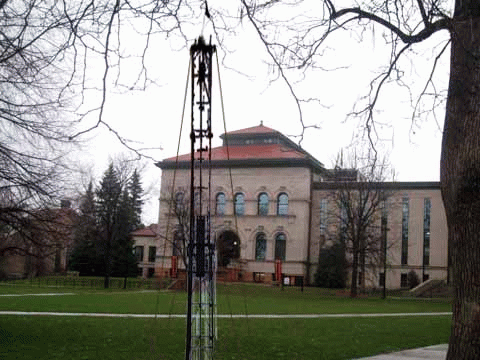The title of Dr. Patty Limerick's opinion article that appeared in the Denver Post on November 9, 2013, is "Limerick: Changing the conversation over fracking." I agree that the conversation may need to be changed, but not in the direction she's taking it.
For the last year Limerick* has been involved in a project by the National Science Foundation's Sustainability Research Network. In this project researchers are attempting to maximize the benefits and minimize the risks of natural-gas production. Limerick states repeatedly that she wishes to open up the framework of public discussion to more listening and reflection and to 'cut back on the shouting and take part in a civil discussion shaped by the consideration of evidence rather than the denunciation of opponents'. I have attended every session of her series and have yet to hear anything even approaching shouting or denunciation from compliant FrackingSENSE audiences, so in that aim she must be succeeding.
This is what she has learned in this series:
Apples and oranges.
1. Communication often founders on the unexamined use of definitions. As to hydraulic fracturing, are we talking about the point below the ground at which fracking fluid is pushed at high pressure, or is fracking the entire process from above to below the ground?
When conversants employ different definitions, agreement is futile.
Baseline monitoring.
2. Before development occurs, water and air samples must undergo baseline environmental monitoring.
I would add that monitoring must continue with development.
Technology outstrips consent and cooperation.3. Technology now enables a dramatic increase in production of natural gas, but not so developed is the 'social license to operate'--residents in proximity to sites of natural-gas development may not wish to tolerate industrial activity by their homes, and so arises the question of their consent and cooperation. As the boom spreads across vast areas overlying deep shale, the question only becomes more acute. Will politicians come to the aid of their citizens, at least providing for decisions to be made locally?
According to Colorado's Governor Hickenlooper, imposing any local control over fracking is a taking--seizure of property (or prevention of use) without just compensation. Local control would impede the state in its efforts to eschew waste. Eschewing waste sounds like a stellar aim for a state until one realizes that the legal meaning of waste, according to Colorado, is leaving hydrocarbons in the ground, wasting away without reaching their full potential in flames.
Aim those anxieties.4. Limerick disputes the public's anxiety about groundwater contamination from hydraulic fracturing, saying that when oil-and-gas wells are well constructed, that which they release far below is unlikely to be able to find its uninvited way back up.
That is true, when the O&G wells are indeed well constructed, and the concrete used to case the pipe is of high quality and many layers. And also when these new shafts do not accidentally or occultly encounter old or abandoned shafts, sometimes presenting unsuspected new routes to the surface, or to aquifers, for escaping gas and chemicals. Taking the industry at its word, Limerick suggests a better target for public anxiety, that being methane leakage, which reduces if not eliminates the 'climate advantage of natural gas over coal'. Although I don't think concerns about groundwater contamination are entirely misplaced I will agree that methane leakage is another worthy target on which to pin one's worries.
Aim those anxieties II.5. Nearly one thousand components of fracking fluid have been identified despite the industry's reticence, of which only a few dozen should be of concern to us, says Limerick. The ones that concern us are the ones that, underground, possess three specific qualities: they are hazardous; they are mobile enough to get to the surface; and they are persistent enough to retain their toxicity. If they pass those barriers, she says, their work is still not through; like the victim of a demanding stepmother they still must fulfill three more: A source such as a spill (or a leak), a receptor such as a person (or an animal) drinking from a well or a farmer irrigating with contaminated groundwater; and a pathway to link the twain.
For toxicants that have muscled their way to the surface, those final three barriers do not seem unlikely to be whelmed.
Know your waters.6. Limerick has learned to distinguish flowback from produced water, either one of which can contaminate the surface. Flowback returns when the high-volume drilling ceases; it contains fracking fluid. Produced water, also called formation water, already existed in the underground bed and so can be laced with its own dangerous chemicals, compounds, and radioactivity. According to one of the spring FrackingSENSE speakers, Dr. Bernie Goldstein, the public-health effects of produced water may be of more concern than the fracking fluid.
(Note: You can view every article as one long page if you sign up as an Advocate Member, or higher).






